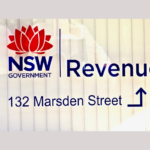Extravagant MPs: What does the law say about excessive spending?

Parliamentary Speaker Bronwyn Bishop is on probation after she claimed a $5,227 helicopter ride to attend a Liberal Party fundraising dinner.
While this may seem like an extravagant use of taxpayer money, Bishop denies breaking any entitlement rules.
And while Tony Abbott has criticised Bishop, he has declared that she still has his confidence, stating:
“She has been a strong Speaker… she has been a strong servant of our country, she has been a good servant of the Coalition and so she does have my confidence but like everyone who has done something like this, inevitably, for a period of time, they are on probation.”
Abbott acknowledged that Bishop’s conduct was an error of judgement, but said that it was not enough to warrant a resignation.
Opposition Leader Bill Shorten, himself facing a Royal Commission over his union past, has called for Bishop to resign over what he has called an “arrogant misuse” of travel funds.
But Bishop has quashed the hopes of those eager to see her retire, vowing to stay in office despite the scandal.
She has paid back the money for her helicopter flight, on top of a $1,300 penalty. She has not apologised for the conduct, although Abbott says that she is “apologetic”. In Bishop’s mind, “the biggest apology one can make is to repay the money”.
Bishop is just one of many politicians criticised in recent years over dubious entitlement claims.
Scott Morrison, Joe Hockey and Peter Slipper are just a few other who have found themselves in hot water after allegedly misusing their parliamentary privileges.
What can politicians claim?
Politicians can claim money spent on domestic travel, international travel, staff, accommodation and office facilities.
There are also benefits and entitlements for partners and dependent children of senators and members of parliament.
These entitlements are passed under various pieces of legislation and set out in the Australian Government Department of Finance Entitlements Handbook.
But the rules are very broad and relaxed, allowing politicians to claim all kinds of things – from travel to attend the weddings of colleagues, to ‘study tours’ through Europe that cost tens of thousands of dollars.
Even the chairman of a government waste committee has faced criticism for spending almost $11,000 travelling to and from sporting events. Ironically, that committee was created to look into the mismanagement of taxpayer money.
What does the criminal law say about breaking the rules?
Politicians who dishonestly claim benefits or entitlements can potentially be charged with a Commonwealth offence.
When declaring their expenses, politicians must state that:
1. “I understand that knowingly giving false and misleading information is a serious offence under the Criminal Code Act 1995,” and
2. “I certify that I travelled on the charter and it was provided for official purposes.”
It is an offence under section 136(c) of the Schedule of the Criminal Code Act to make a false or misleading statement about:
(i) An application for a licence, permit or authority; or
(ii) An application for registration; or
(iii) An application for a benefit.
The maximum penalty is twelve months imprisonment.
In order for the offence to be established, the prosecution must prove beyond reasonable doubt that the defendant knew the statement to be false or misleading.
If that knowledge cannot be proved, but the prosecution can establish that the defendant was reckless as to whether or not their statement was false or misleading, the maximum penalty is six months imprisonment.
General fraud offences also require proof beyond reasonable doubt of both dishonesty and deception.
These offences can be very difficult to prove, which makes it relatively easy for politicians to get away with using taxpayer funds to pay for seemingly unnecessary expenses.
Back to Bishop
Labor has called upon the Australian Federal Police to investigate Bishop’s conduct.
But the politician has stood firm, adamantly denying that she has broken any rules. And she may be right, given the breadth of activities that can potentially be categorised as parliamentary entitlements.
What ultimately comes of Bishop’s conduct is yet to be seen; but one thing is for certain, politicians often get away with spending taxpayer funds on activities and expenses that do not appear to be directly connected with their parliamentary duties.
Receive all of our articles weekly
Author






